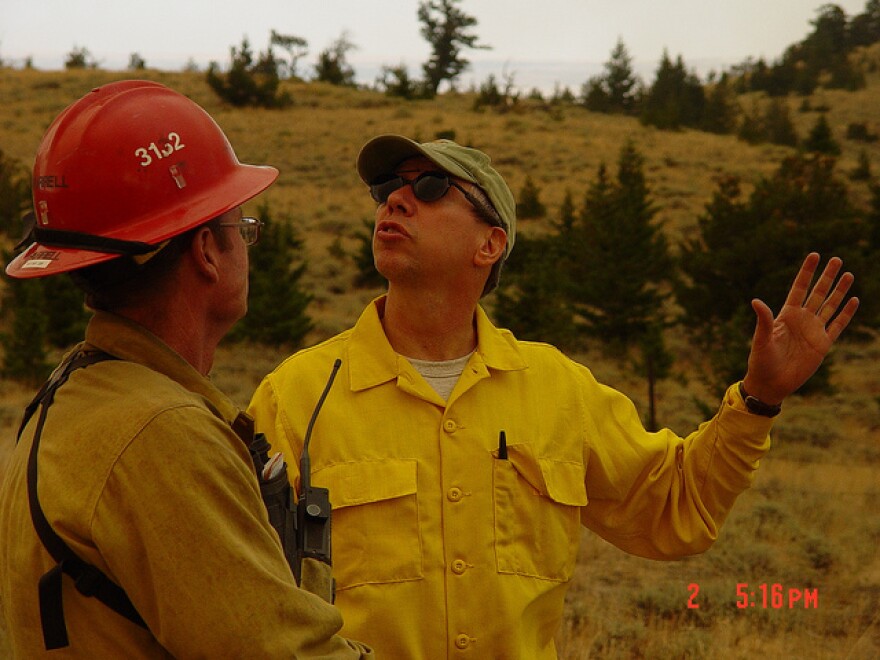Weather, fuel, and topography all affect wildfire behavior—and changes in any one of them can greatly impact the way firefighters work the fire lines.
It’s up to incident meteorologists and fire behavior analysts to help firefighters understand the nature of the particular fire they are battling, and how best to contain it quickly and safely.
Geremy Olson is a fire information officer at the Lodgepole Complex fire. He says those two positions are important for day-to-day and sometimes hour-to-hour decisions.
"One of the situations we had here is we knew we had a wind shift coming," said Olson, "So we could put resources on the opposite side of the fire that next day.
Many of the firefighters working to protect structures and livelihoods in Montana are 18 to 24 year-old men and women. While they are on the front lines, Olson says it’s crucial to have people giving them the information and analysis they need to do their job.
"When we’re talking about incident meteorologists and fire behaviorist it’s all about keeping those kids safe and the public that we are here to support," said Olson.
There are currently more than 140 fire restrictions in Montana and Wyoming.
A Stage One fire restriction prohibits, with few exceptions, the building and maintaining of fires and campfires and bans smoking except in an enclosed vehicle or building.
A Stage Two fire restriction builds on Stage One restrictions by adding prohibitions between 1 P.M. and 1 A.M. for the operation of internal combustion engines, any welding or torch activity, and the use of explosives. Operating motorized vehicles off designated roads and trails is also prohibited.
There are fines up to $5,000 for an individual or $10,000 for an organization and up to 6 months in jail for violating any fire restrictions in the state of Montana. Additionally, any individual or organization found to have started a fire can be held liable for all suppression costs and damages.







